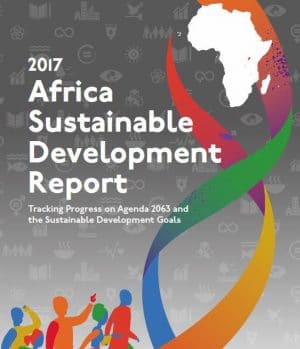
Policy highlights:
- This report combines the targets of Agenda 2063 and Agenda 2030 to review and provide a baseline for the progress made on the African continent. It also identifies what policies have been effective and gives a comprehensive overview of how the two agendas link and combined.
- Important findings include that: 1) especially youth and women suffer from the slow progress made in poverty reduction, mainly due to lack of (decent) employment, 2) there are significant improvements in gender parity in education and political representation, however, much more needs to be done, (e.g. addressing harmful norms and practices like child marriage and stereotyping), 3) improved access to skilled birth attendants and family planning have contributed to a decrease in maternal and child deaths, however, Africa still lags behind and there are significant country and regional disparities.
- Specific attention is paid to the lack of inclusivity in development and the unsustainability of commodity-driven growth. Structural transformation, decent work and social insurance are key in addressing these problems. Some recommendations for policymakers include: 1) addressing poverty and inequality simultaneously (e.g. through increasing household income, securing property rights, and increasing human capital), 2) expanding employment opportunities by improving skills and focusing on labour-intensive sectors, and 3) expanding fiscal space for equitable spending (tax administration, considering spending impact on the less privileged, and fighting illicit financial flows).
- Some promising solutions to the continent’s challenges include: 1) improving infrastructure through rail transportation, and 2) making use of increased mobile network access to benefit financial inclusion and entrepreneurship.










